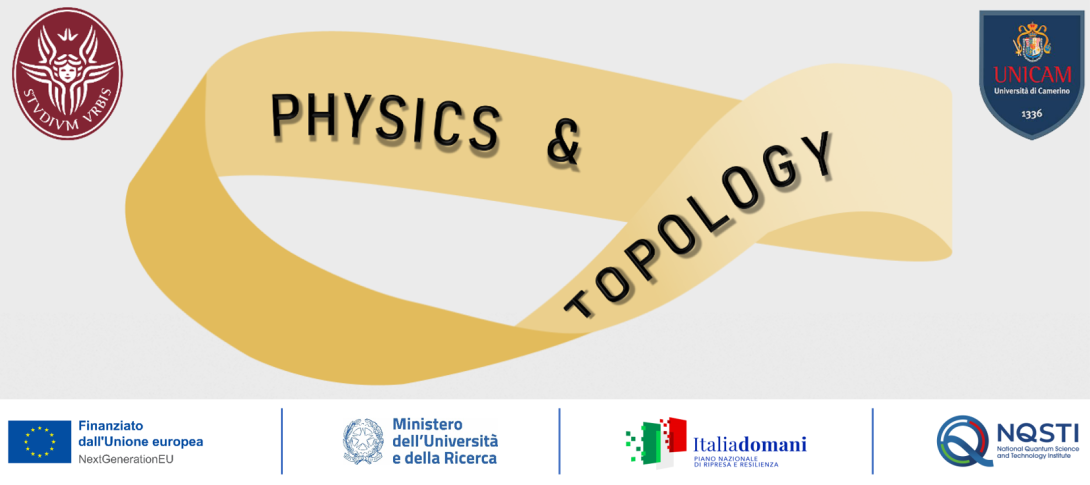From:
to:

Topology which concerns the properties of a geometric object that are preserved under continuous deformations, such as stretching, twisting, crumpling, and bending, has recently found a route from mathematics to physics. Indeed, although within the Landau paradigm, quantum phases of matter differ by their symmetries, a finer classification exists, based on the entanglement (topological) properties of their wavefunctions. This finer classification gave rise to the discovery of new quantum topological phases like the quantum spin Hall effect and topological insulators culminating with the Nobel Prize in 2016 to Haldane, Kousterliz, and Thouless. Today, topology is one of the most active and fruitful research areas in physics, and intense efforts have been devoted to the exploration of new topological quantum phases and phenomena. This goal is driven not only by the prediction of fundamentally new physical phenomena but also by the potential technological applications of such systems. In this workshop after a general discussion of topological effects in physics and mathematics, more focalized talks will be given, touching specific fields like quantum topological materials, topological photonics and acoustic, topological superconductivity, and their applications in devices. In our opinion, this multidisciplinary environment is of fundamental importance for the purposes of a general vision of the topological effects in physics and for cross-fertilization among different research fields.
Organizers:
Sapienza Università di Roma, Università di Camerino and NQSTI
Prof. Stefano Lupi
Dr. Salvatore Macis
Prof. Gianluca Panatiphot
Prof. Andrea Perali
Venue: Aula Conversi, Marconi building, Department of Physics, Sapienza University of Rome
Website: https://sites.google.com/uniroma1.it/physicsandtopology/home
Link for remote connection: https://meet.google.com/isx-pjbz-xcn
Registration: free
Periodicity: first of a series of annual workshops
Public: graduate and undergraduate students, Ph.D. students, professors


